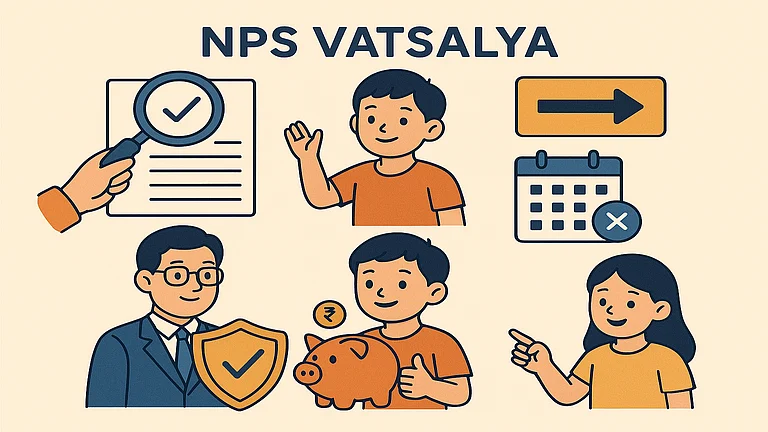
Summary of this article
Despite awareness campaigns by insurers, most policyholders either leave the nominee column blank or casually write down the name of their youngest child without understanding the consequences. Many also assume that their legal heirs will automatically inherit the money, not realising the difference between nomination and succession.
When a 38-year-old IT professional bought his first life insurance policy, he naturally named his 8-year-old daughter as the nominee. It seemed like the most obvious choice after all; the whole point of the policy was to protect her future. But when tragedy struck unexpectedly, his wife discovered that naming a minor as the nominee was far from straightforward. The claim money was tied up in legal procedures because a minor cannot directly receive payouts. What he thought was a responsible financial step turned into months of paperwork and delays for his family.
Across India, thousands of families face similar hurdles. While most people assume that nominating their child ensures a seamless transfer of benefits, the reality is more complicated.
Why Minor Nominations Create Complications
Insurance contracts are designed to transfer funds quickly and efficiently after the death of the policyholder. However, when the nominee is under 18, insurers are legally restricted from handing over large sums directly to a child. In such cases, the payout often requires a court-appointed guardian or trustee. This creates delays and sometimes disputes, especially if different family members step forward to claim the role of guardian.
“Nomination is often misunderstood as inheritance,” explains Venkatesh Naidu, CEO, BajajCapital Insurance Broking. “In reality, a nominee is only a trustee of the money, not necessarily the ultimate owner. When that trustee is a minor, the system demands additional safeguards. Parents need to anticipate this at the time of buying cover instead of leaving it to chance later.”
The Legal Roadblocks Families Face
If a minor is named without an appointee (an adult authorised to receive funds on the child’s behalf), the insurer cannot release the claim amount directly. Families are then forced to:
Approach a court for guardianship certification
Provide affidavits or legal undertakings
Wait through weeks or months of hearings
Meanwhile, urgent needs like medical bills, school fees, and home loans remain unpaid. In this case, his wife had to borrow from relatives for daily expenses even though a Rs 1-crore policy was sitting unpaid in his name.
These roadblocks defeat the very purpose of insurance: to provide immediate liquidity at a time of crisis.
Smarter Alternatives Parents Can Use
The good news is that there are simple steps to avoid such bottlenecks:
1. Appoint an Appointee: When naming a minor, also declare a trusted adult (spouse, sibling, or close relative) as the appointee. This person receives and manages the funds until the child reaches majority.
2. Use a Trust Structure: For higher-value policies, creating a family trust ensures funds are managed according to your instructions. A trustee oversees the money and disburses it for the child’s welfare.
3. Nominate an Adult First: Some families choose to nominate a spouse or parent initially and later update the nomination to the child when they turn 18.
4. Review Nominations Regularly: Life changes like marriage, divorce, or the birth of another child should trigger a review of your nomination to keep it aligned with current priorities.
“An appointee costs nothing and takes just one form to declare, but it can save a family months of delay,” Naidu says. “The tragedy is that people are diligent about paying premiums for decades but overlook a simple detail that decides how fast the claim money actually reaches their loved ones.”
Why Awareness Remains Low
Despite awareness campaigns by insurers, most policyholders either leave the nominee column blank or casually write down the name of their youngest child without understanding the consequences. Many also assume that their legal heirs will automatically inherit the money, not realising the difference between nomination and succession.
Industry surveys suggest that over 30 per cent of life insurance policies in urban India list minors as nominees without appointees. In semi-urban areas, the percentage is even higher. This creates a ticking time bomb of delayed or disputed claims.
The Bigger Lesson: Claims Must Be “Ready”
Insurance is not just about buying a policy; it is about making it “claim-ready.” A policy that fails to deliver liquidity when needed most is as good as no cover at all. Just as people compare premiums or coverage amounts, they must also check whether their paperwork ensures smooth settlement.
“Families don’t just need insurance; they need accessible insurance,” Naidu emphasises. “A payout stuck in the courts does not feed a child or pay a hospital bill. That is why ensuring claim readiness through correct nominations is as important as choosing the right sum assured.”
For young parents, naming a child as a nominee may feel natural, but without an appointee or trust, it can be a financial roadblock rather than a safety net. The goal of insurance is speed and certainty - two things that get compromised if legal formalities intervene. By adding an appointee today, or setting up a trust for larger covers, parents can ensure that their children receive the money without delay, confusion, or disputes.
Insurance is not just about protecting dreams; it is about making sure those dreams stay funded when life takes an unexpected turn. And that requires attention not only to what you buy, but also to whom you nominate.














